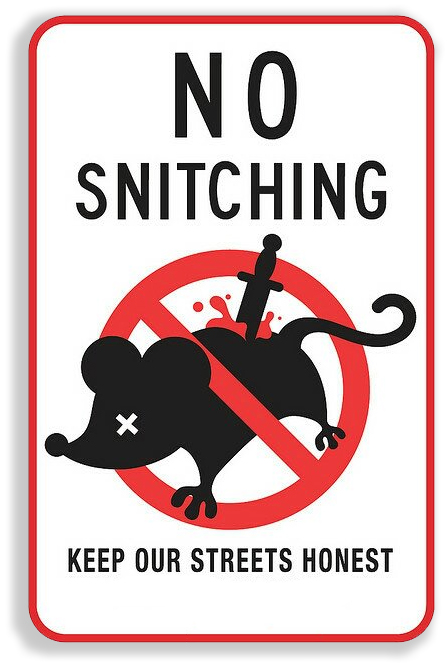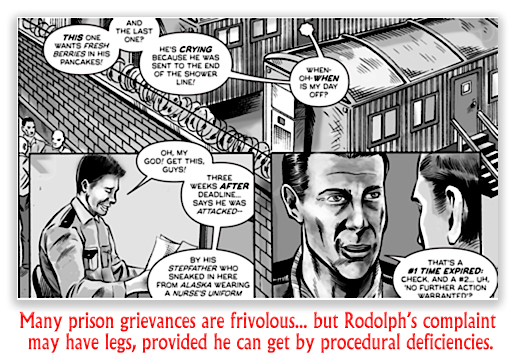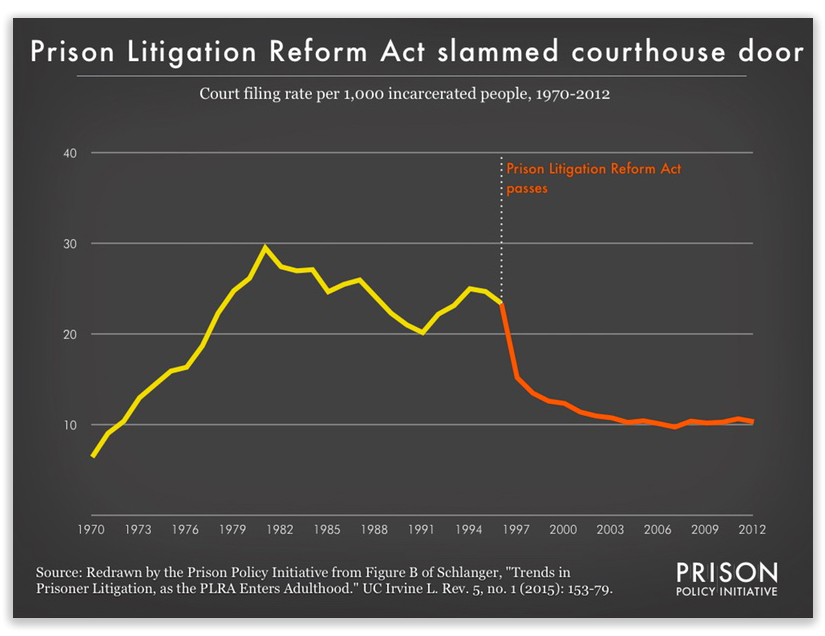We post news and comment on federal criminal justice issues, focused primarily on trial and post-conviction matters, legislative initiatives, and sentencing issues.

HOW MUCH IS TOO MUCH FOR IFP?
The right of access to the courts is not forfeited by indigent people (including prisoners), a constitutional imperative for the past 75 years or so. The Prison Litigation Reform Act tried the limit that right by hobbling would-be litigants, due to what politicians perceived to be abuses of the federal courts by prisoners with grievances,
 One provision requires prisoners to pay filing fees upfront unless they can prove poverty. If they are successful, prisoners may proceed in forma pauperis (IFP), but the courts extract the filing fees from their prison commissary accounts at a set rate. An indigent who is not a prisoner is not subject to this limitation.
One provision requires prisoners to pay filing fees upfront unless they can prove poverty. If they are successful, prisoners may proceed in forma pauperis (IFP), but the courts extract the filing fees from their prison commissary accounts at a set rate. An indigent who is not a prisoner is not subject to this limitation.
To gain IFP status, and thus to avoid prepaying a $405 U.S. District Court filing fee, prisoners must – among other things – file an affidavit including a printout of their inmate trust accounts (commissary account) showing how much they collected and spent for the past 6 months.
But how much can you have in the account before you’re too rich to be poor? Jordan Whitaker, an Illinois prisoner, found that out last week. He wanted to appeal the loss of a federal suit against his state prison. His IFP filing showed his commissary account had $575, more than enough to cover the $505 filing fee, on the day his notice of appeal was filed, so the district court denied his request and told him to pay.
Last week, a 7th Circuit judge reversed the district court, holding that “the district court did not adequately consider the balance the Prison Litigation Reform Act (PLRA) struck between the need to collect fees and a prisoner’s discretionary use of his funds.”
IFP status is an exception to the normal rule in federal court that parties must prepay fees when filing litigation. But if a prisoner shows he or she is indigent, the PLRA requires the court to collect 20% of the prisoner’s average monthly deposits or balances in the past six months (whichever is higher) and then collect the remainder of the fees in installments based on 20% of the prisoner’s monthly income until the full debt is paid.
 Here, the 7th said, “drawing the line for in forma pauperis eligibility at the mere ability to pay the full filing fee fails to respect Congress’s compromise. Worse, it can lead to odd results that Congress likely did not intend. For example, such a rule creates a sharp welfare cliff: a prisoner with a consistent monthly income of $504 that he spent in full would need to pay only $100.80, but a prisoner like Whitaker with a balance of a few dollars more would need to pay almost everything he has, regardless of his income… A court may well have discretion to find a prisoner ineligible short of the point where the outcome of the statutory formula exceeds the full fee, but Whitaker’s income and assets are nowhere close to that limit…Whitaker should be permitted to prepay the prescribed portion of the fee with the rest to be collected from his future income, as Congress envisioned.”
Here, the 7th said, “drawing the line for in forma pauperis eligibility at the mere ability to pay the full filing fee fails to respect Congress’s compromise. Worse, it can lead to odd results that Congress likely did not intend. For example, such a rule creates a sharp welfare cliff: a prisoner with a consistent monthly income of $504 that he spent in full would need to pay only $100.80, but a prisoner like Whitaker with a balance of a few dollars more would need to pay almost everything he has, regardless of his income… A court may well have discretion to find a prisoner ineligible short of the point where the outcome of the statutory formula exceeds the full fee, but Whitaker’s income and assets are nowhere close to that limit…Whitaker should be permitted to prepay the prescribed portion of the fee with the rest to be collected from his future income, as Congress envisioned.”
Whitaker v. Dempsey, Case No 23-1086, 2023 U.S. App. LEXIS 26851 (7th Cir. Oct 10, 2023)
– Thomas L. Root














